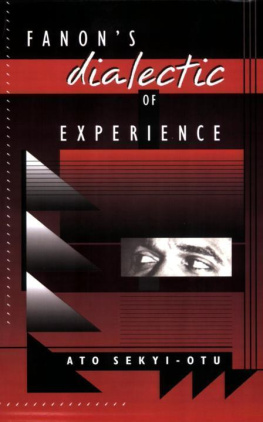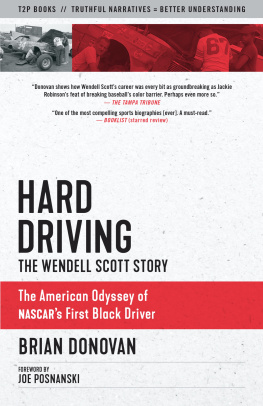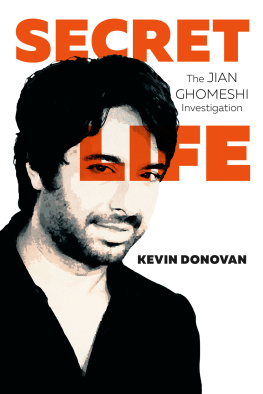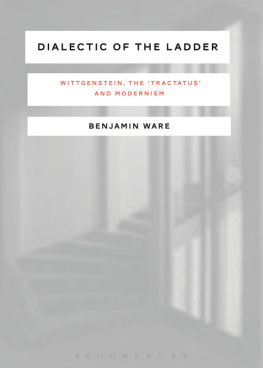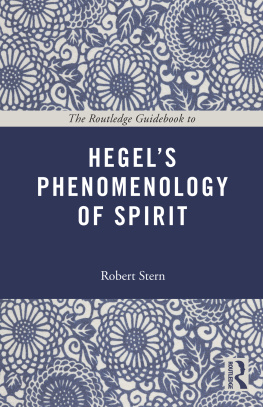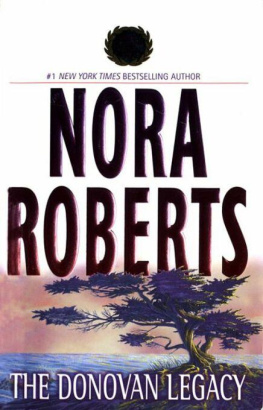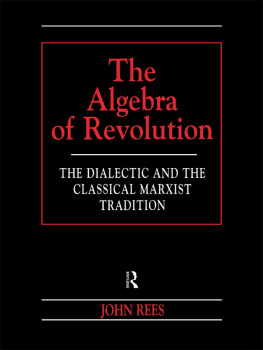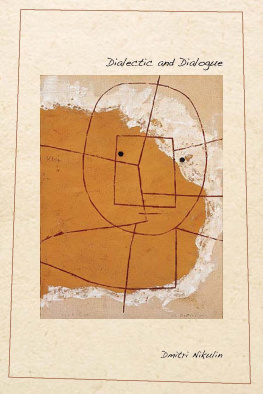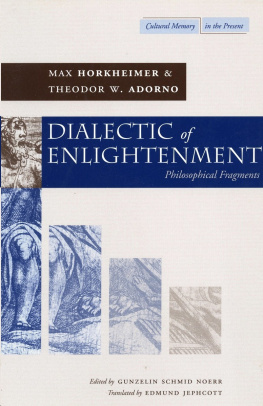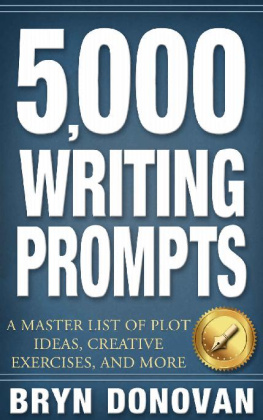Donovan Tom - Dialectic of Enlightenment As Sport
Here you can read online Donovan Tom - Dialectic of Enlightenment As Sport full text of the book (entire story) in english for free. Download pdf and epub, get meaning, cover and reviews about this ebook. year: 2015, publisher: Algora Publishing, genre: Religion. Description of the work, (preface) as well as reviews are available. Best literature library LitArk.com created for fans of good reading and offers a wide selection of genres:
Romance novel
Science fiction
Adventure
Detective
Science
History
Home and family
Prose
Art
Politics
Computer
Non-fiction
Religion
Business
Children
Humor
Choose a favorite category and find really read worthwhile books. Enjoy immersion in the world of imagination, feel the emotions of the characters or learn something new for yourself, make an fascinating discovery.

- Book:Dialectic of Enlightenment As Sport
- Author:
- Publisher:Algora Publishing
- Genre:
- Year:2015
- Rating:5 / 5
- Favourites:Add to favourites
- Your mark:
- 100
- 1
- 2
- 3
- 4
- 5
Dialectic of Enlightenment As Sport: summary, description and annotation
We offer to read an annotation, description, summary or preface (depends on what the author of the book "Dialectic of Enlightenment As Sport" wrote himself). If you haven't found the necessary information about the book — write in the comments, we will try to find it.
Dialectic of Enlightenment As Sport — read online for free the complete book (whole text) full work
Below is the text of the book, divided by pages. System saving the place of the last page read, allows you to conveniently read the book "Dialectic of Enlightenment As Sport" online for free, without having to search again every time where you left off. Put a bookmark, and you can go to the page where you finished reading at any time.
Font size:
Interval:
Bookmark:
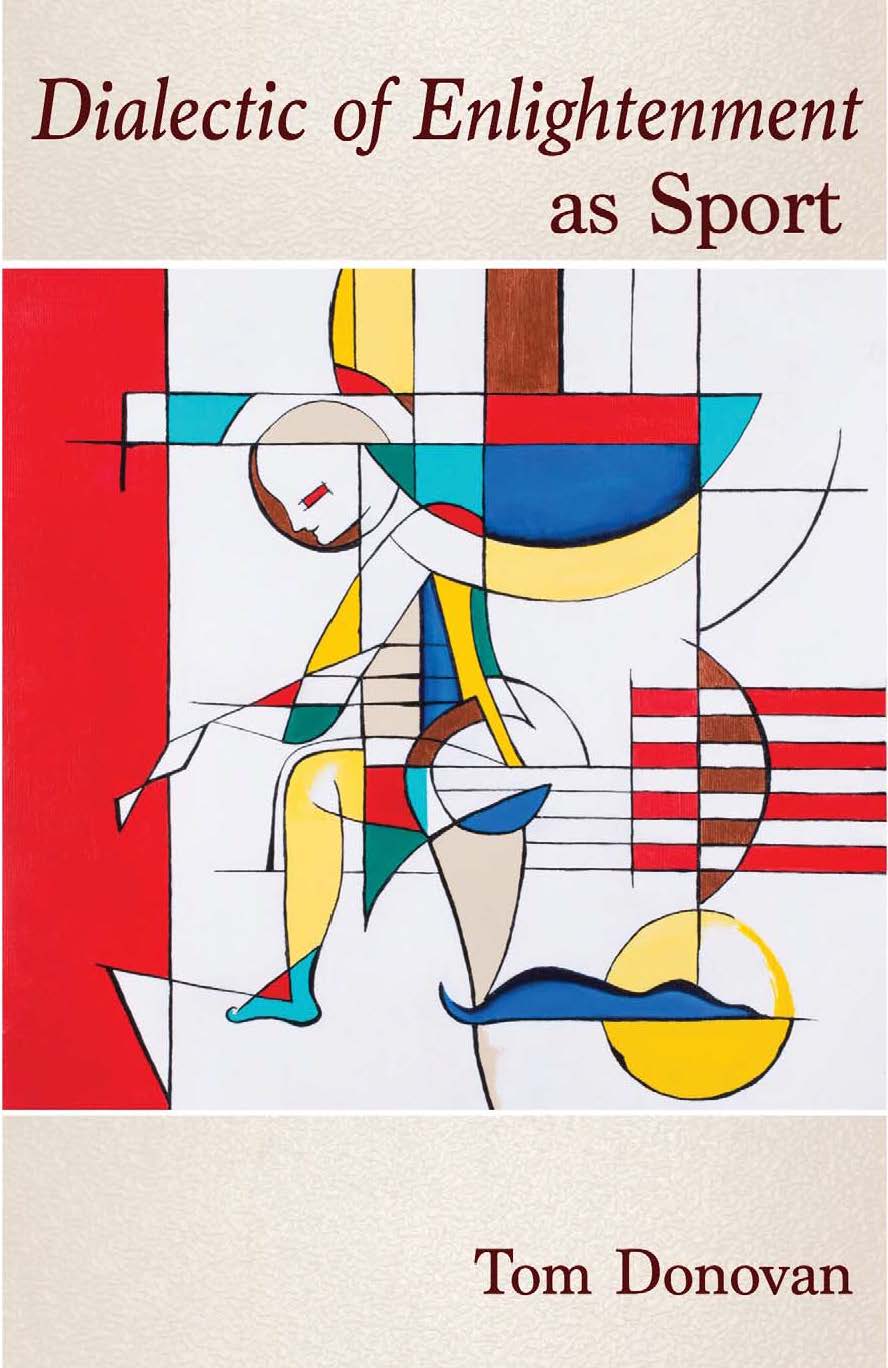
Dialectic of Enlightenment
as Sport
Dialectic of Enlightenment as Sport
The Barbaric Urge
within
Sports, Religion, and C apitalism
Tom Donovan
Algora Publishing
New York
2015 by Algora Publishing.
All Rights Reserved
www.algora.com
No portion of this book (beyond what is permitted by
Sections 107 or 108 of the United States Copyright Act of 1976)
may be reproduced by any process, stored in a retrieval system,
or transmitted in any form, or by any means, without the
express written permission of the publisher.
Library of Congress Cataloging-in-Publication Data
Donovan, Tom, 1967
Dialectic of enlightenment as sport: The barbaric urge within sports, religion, and Capitalism / Tom Donovan.
pages cm
Includes bibliographical references and index.
ISBN 978-1-62894-162-3 (soft cover: alk. paper) ISBN 978-1-62894-163-0 (hard cover: alk. paper) ISBN 978-1-62894-164-7 (eBook) 1. Horkheimer, Max, 18951973. Philosophische Fragmente. 2. Adorno, Theodor W., 19031969. 3. Philosophy. 4. SportsPhilosophy. I. Title.
B3279.H8473P534 2015
193dc23
2015026714
Cover illustration by Wendy Walczak.
Printed in the United States
For Christine and Thomas
SPORT:
Physical activity engaged in for pleasure
To amuse oneself
To stray from style
To satirize
Tebow Time
It was hard not to believe that God was rooting for Tim Tebow on that glorious January day in 2012 when the Denver Broncos defeated the Pittsburgh Steelers.
Apparently, more Americans than not believe that God helps Tebow win football games. In response to all this, Twitter broke twitting records and Google searches of this New Testament verse hit an all-time high. The urge to find metaphysical significance seems to extend from the local church to the sports field and even into the cyber world.
Still, Tebow himself doesnt seem to want or expect God to help him win. Rather he appears to be motivated by intrinsic values, and his focus seems to be on keeping his character and soul pure. Even when the game is on the line he has been heard saying: Dear Jesus, I need you. Please come through for me. No matter what happens, win or lose, give me the strength to honor you, And despite losing the next playoff game, and eventually losing his NFL job, Tebow has remained positive and grounded, and his popularity has not dissipated. For we live in the Age of Tebowing.
Introduction. Schizophrenic Modernity
One could half-seriously ask if Max Horkheimer and Theodor Adorno might find themselves rooting for Tim Tebow. Although, from all indications, these German philosophers were not fans of American football, today they might find themselves rooting for someone or something pushing back against actual existing modernity. In a world that has become increasingly cynical and economically calculating, two guys, who more than half a century ago already thought instrumental reason had become totalitarian, might have to get behind someone who seems to be guided by an intrinsic and metaphysical impulse.
Does Tim Tebow represent a challenge to the period called Modernity? Where else could one find such a competitive other of reason, such a force of nature? How dare coaches and football experts a priori determine what it means to be a quarterback when God is on Tebows team? Tebows popularity, success, and faith seem to offer a counterexample to the idea that in modernity victory, progress, success, and happiness require strategic conniving, scientific and technological advantage, progressive ideas, and the privatization of religion. For whether we are talking about Kants injunction that enlightenment means: Sapere aude ! Have the courage to use your own reason, Yet steel could not defeat prayer. The only ones compelled to face reality with sober senses turned out to be the Pittsburgh Steelers, and they also were full of tears and lacking in orientation, victory, success, progress, and happiness when Tebow finished with them. How strange are the times we live in if Tebows success and popularity seem to validate Horkheimer and Adornos warning of the return and revenge of the Other of enlightenment reason, as well as their skepticism towards the modern project in general?
As the Tebow phenomenon shows, the world that the Enlightenment was supposed to usher in turns out not to be sufficient for winning football games, grounding normativity, or giving humans something meaningful to believe in. And as we clearly know now, but perhaps dont like to admit, the Scientific Revolution and the Enlightenment themselves were deeply intertwined with superstition and faith, and these sacred impulses still have not melted into air. Metaphysical urges are hard to shake. In the world we live in today it is more than common to link ones idea of individual progress or social hope with some sort of non-human inspiration. Its difficult to rely solely on self-reflective reason or the merely human. Its unclear whether modernity can ever shake the pull of the transcendent, but that is not to say that people today completely trust their faith and pre-modern ideologies either. As the joke the Aunt tells in Woody Allens Crimes and Misdemeanors captures: a boxers corner asks a Priest to pray for their fighter and the Priest says he will, but continues with it will help if he can punch! In our world, many may still pray, but they also learn how to punch. Science and reason have not destroyed superstition and faith, and those who adhere to ancient myths dont typically reject all of modernity.
In the case of Tebow, his magical year did not lead to a second coming. while an artificial, steroid shooting, cyborg-like man from Russia uses ultra-modern training tools and propaganda to try to beat you into submission. Rather, todays Christian is a teched-out warrior on twitter. Go into any megachurch today and you will find Gods people logging into Facebook, see the congregations youth downloading Christian rock or rap, and watch the bible club exchanging tweets proving Gods existenceor even meeting to practice MMA submission techniques. Likewise, with Tebow, we saw a modern, rational, and calculating football player fused with ancient, faith-based beliefs and actions: wild animal aggression in Nike cleats running to the goal line transformed into a gentle pious Tebowing in the end zone, a chiseled Wolverine body with bible verses extolling love under the eyes, a self-proclaimed virgin who hangs with and dates celebrities. And if and when the football is over it wont halt the Tebow crusade. Religion can be found in all corners of our modern, capitalist culture so there will always be a place in modernity for Tebows ilk. And if the college football announcing doesnt work out one could imagine Tebow getting an online offer to sell his virginity to the highest bidder with the proceeds going to build a church in some depraved part of the world. But for now, Tebow and T-Mobile have teamed up, and the sacred and the profane have never been more intimate.
Tebows success and struggles makes it clear that the modern world is an ambiguous world in which it is hard to even adequately grasp, conceptualize, define, or understand. The world is becoming more and more profane, secular, and strategic, and at the same time, religion has come back like a force of nature. It is a world that embraces both The Wolf of Wall Street and the Jesus Freak. It is a world that seems to have paradoxically given us progress and decline at the same time, and from both ends of the spectrum.
On the one hand, we are the recipients of vast advances in health, longevity, modern comforts, scientific progress, and the like. Religion has been de-centered and made more tolerant as critical thinking and rival worldviews enter the lifeworld. On the other hand though, while many of our technological advances and modern comforts serve human needs, just as many seem to distract and alienate us. And de-centered religion, while making many more tolerant, has also brought out a more irrational, frenzied, and dogmatic faith in some and a complete disenchantment with religion in others. Tolerance, moderation, and modern subjectivity are getting squeezed between a reinvigorated medieval religious conviction and a hedonistic post-modern and pessimistic meaninglessness. Modernity seems trapped within a binary of stupid faith and senseless nihilism.
Font size:
Interval:
Bookmark:
Similar books «Dialectic of Enlightenment As Sport»
Look at similar books to Dialectic of Enlightenment As Sport. We have selected literature similar in name and meaning in the hope of providing readers with more options to find new, interesting, not yet read works.
Discussion, reviews of the book Dialectic of Enlightenment As Sport and just readers' own opinions. Leave your comments, write what you think about the work, its meaning or the main characters. Specify what exactly you liked and what you didn't like, and why you think so.

